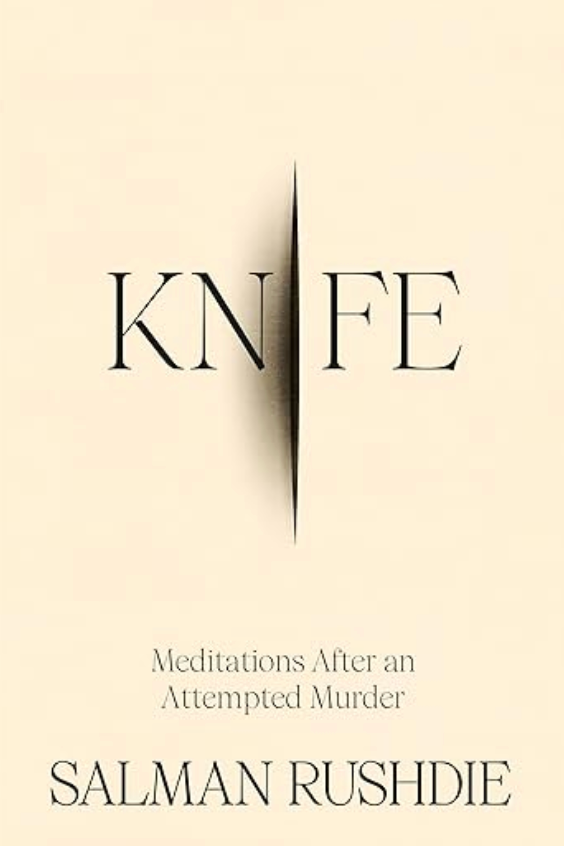Tuesday | Knife
4/30/24
I heard Salman Rushdie interviewed on The Ezra Klein Show this week (Apple Podcasts, NYTimes). In this interview, Rushdie read the following text from his most recent book, a memoir Knife of his being attacked and almost killed in 2022.

Klein asked:
You write, “This is as close to understanding my inaction as I’ve been able to get: The targets of violence experience a crisis in their understanding of the real.” What do you mean?
Rushdie replied:
I mean that we all live in a picture of the real. We all have a sense of how things are, and that sense of how things are is our reality. And then when something calamitous happens, somebody arrives in a picture of school with an assault rifle.
Somebody arrives in a church with a gun or in a shopping mall, you know. Everybody in those locations has a picture of what they’re doing. If you’re in a church, you’re there for reasons of belief and worship. If you’re in a shopping mall, you’re there to shop. If you’re in a school, you’re there to be at school. And that’s how you see the world. And the explosion of violence into that picture destroys that reality. And then you literally don’t know the shape of the world. And very often, I think, people are paralyzed and don’t know what to do. How do you act in a moment when the thing that’s happened isn’t a part of the narrative you think you’re in?
"We all live in a picture of the real." That sentence struck me as a good way to explain what it is to live as a speaking being, a human body that is an animal that the effects of language and culture have fundamentally altered.
We live within a society, this picture in the real, but this picture does not negate the real. The real --the human capacity for senseless violence and unpredictable events like earthquakes and pandemics– is still there. Because the picture, the combination of the imaginary and the symbolic, is what we live most of our social lives within, it is so powerful that we often forget that the real is there, but it is always there.
In the final years of his life and teaching, Lacan turned his attention to the real. This is one of the reasons I'm a Lacanian: The question of how we might live our lives, of what picture we might try to create in the real matters.